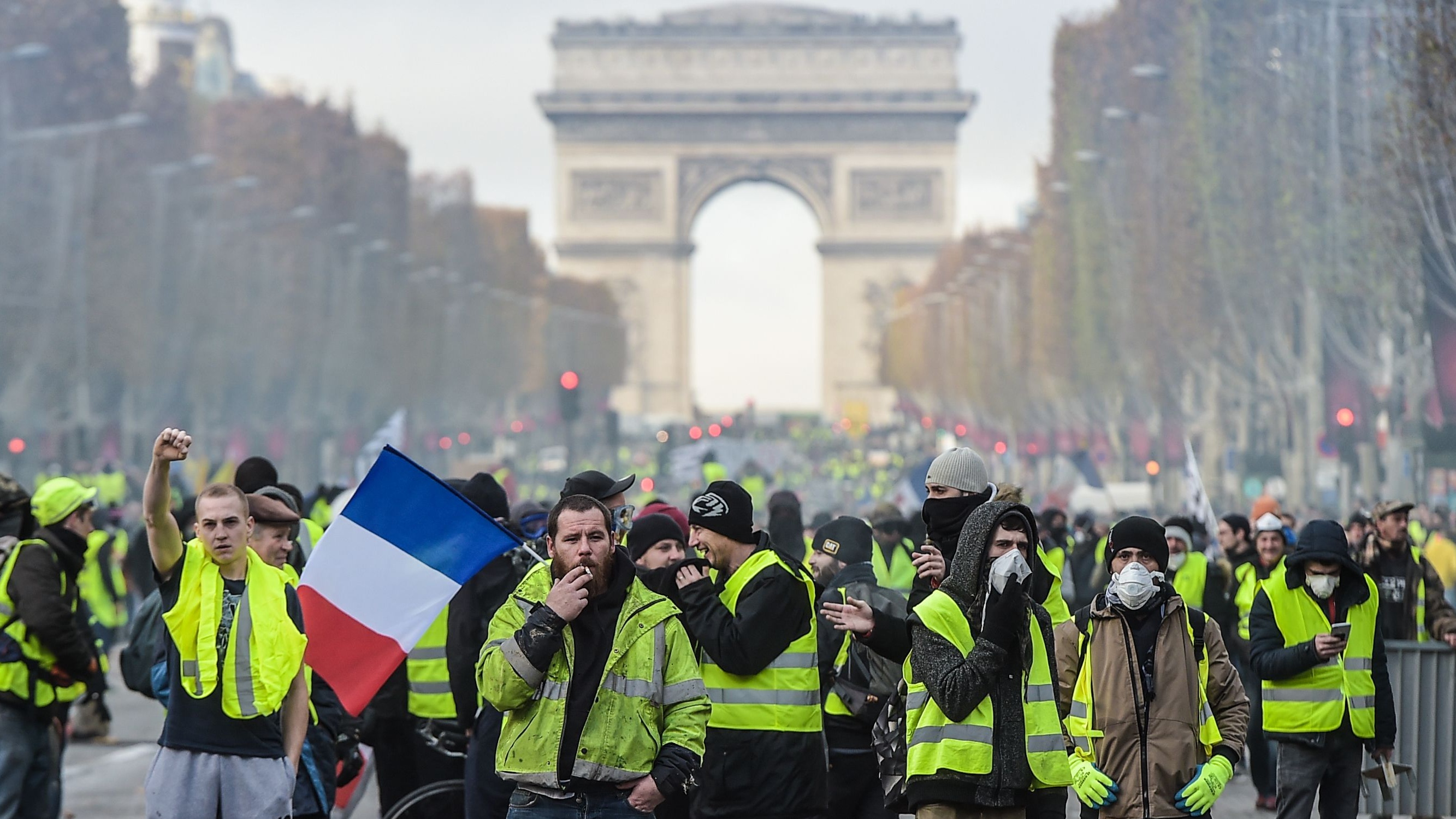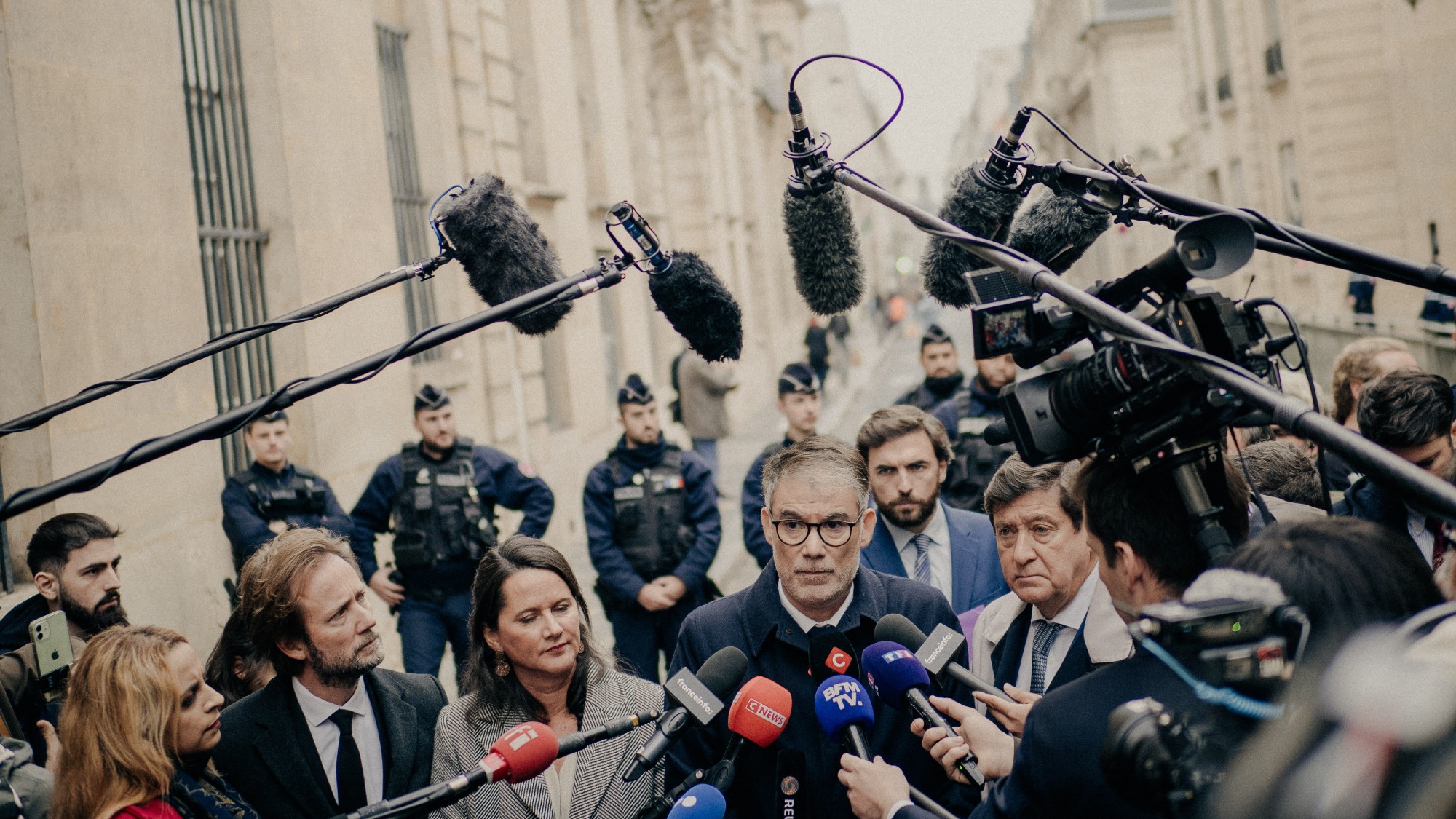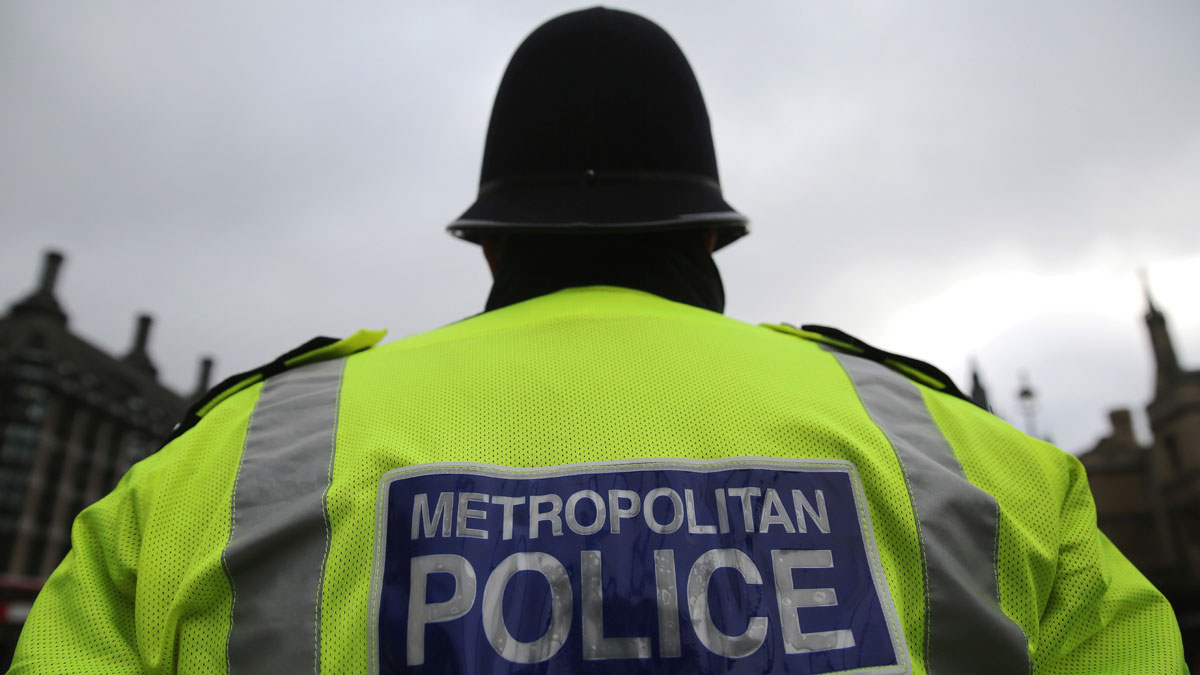Civil unrest fears: five historic uprisings triggered by cost of living
Police reportedly preparing for imminent clashes and disorder across the UK

A free daily email with the biggest news stories of the day – and the best features from TheWeek.com
You are now subscribed
Your newsletter sign-up was successful
Police forces across the UK are reportedly preparing for a wave of civil unrest sparked by the cost-of-living crisis.
According to a “senior source”, chief constables and policing organisations are “sharing intelligence about potential disorder” in the coming months, and assessing how forces nationwide could “bolster their numbers during major incidents”, The Times reported.
The source said there was no “specific intelligence” about disorder, but added: “We know historically that where the economy suffers, acquisitive crime goes up and there is more potential for unrest.”
The Week
Escape your echo chamber. Get the facts behind the news, plus analysis from multiple perspectives.

Sign up for The Week's Free Newsletters
From our morning news briefing to a weekly Good News Newsletter, get the best of The Week delivered directly to your inbox.
From our morning news briefing to a weekly Good News Newsletter, get the best of The Week delivered directly to your inbox.
Martin Lewis has also predicted that violence may break out unless the government takes urgent action, after annual inflation hit a 40-year high of 9% last month. The MoneySavingExpert founder told ITV’s Robert Peston last week that the public mood was “desperate, it’s angry... if we don’t sort this... I worry about civil unrest”.
Violence has already erupted in some other countries, including Sri Lanka, as populations are pushed to the brink by the global economic crunch. Here are five historic uprisings triggered by rising prices.
1. England riots, 1981
Thatcher-era Britain “exploded with rage” in the summer of 1981, in the wake of a UK recession, with civil unrest and clashes with police in Brixton in London, Bristol, Liverpool, Manchester, Birmingham, Leeds and Nottingham, as well as other smaller urban areas, between the months of April and July, said Politics.co.uk.
As the “polarising” first phase of Thatcherism took effect, government-supported factories and industries closed, leading to a rapid increase in unemployment. In Toxteth in Liverpool, for example, male unemployment rose to 40% by 1981, “which was quadruple the national average of approximately 10%”. Meanwhile, unemployment rates were “more like 80% for black youths” according to community activists.
A free daily email with the biggest news stories of the day – and the best features from TheWeek.com
Racial tensions and allegations of police discrimination were also major factors in many of the riots, with policing tactics used in inner-city areas that saw young black people “disproportionately targeted and harassed”, said the news site.
2. Chilean protests, 2019
More recently, Chile was gripped by protests and unrest in the “worst violence the country had witnessed since the 17-year-long military dictatorship of Augusto Pinochet, which ended in 1990”, said Al-Jazeera.
Initially beginning in October 2019 as a student-led protest over rising transport costs in Santiago after the government announced that rush-hour prices would rise by 30 pesos ($0.04), the protests soon spread across the country as millions expressed their anger over “the increasing cost of living, low wages and pensions, a lack of education rights, a poor public health system and crippling inequality”, said the news site.
At least 26 people died during the unrest, said the Office of the UN High Commissioner for Human Rights (OHCHR), while a further 28,000 people were jailed, “many arbitrarily”, while some 350 people sustained injuries to their eyes due to the use of less than lethal weapons by police.
3. Yellow vests protests, 2018
A populist French movement named after the fluorescent yellow jackets worn by its participants, the group Gilets Jaunes held 52 weeks of consecutive protests calling for the government to take measures tackling “economic hardship” and “mounting inequality”, said France 24.
Made up of financially insecure urban and rural workers from across France, the protests were first triggered in November 2018 by an unpopular fuel tax, “ostensibly designed to finance France’s transition to a green economy”, which “infuriated motorists in rural and suburban areas starved of public transport,” said the news site.
Frédéric Gonthier, a political scientist at the Pacte research centre and the School of Political Studies in Grenoble, described the movement as a “watershed in French politics”. It forced Emmanuel Macron’s government into “billions of euros of tax breaks”, said France 24, and “put neglected swathes of the country back on the map”.
4. The Arab Spring, 2010
Food scarcity and rising costs also led to the series of anti-government protests in the Middle East in the early 2010s which would become known as the Arab Spring.
Droughts and fires in Australia and floods in the US between 2009 and 2011 led to a significant drop in exports from those countries, contributing to inflation in high-export countries in the Middle East.
“Shrinking farmlands, bad weather, and poor water allocation” in Middle Eastern nations also contributed to higher food prices, said PBS, ultimately contributing to anti-government sentiment that would spread across swathes of the Arab world.
5. Russian Revolution, 1917
Although there were a number of economic and political factors that lead to the acute crisis that precipitated the Russian revolution, it was ultimately “a shortage of food in St Petersburg and persistent bread queues in the city” that triggered the so-called February Revolution of 1917, which would lead to the overthrow of the monarch and the end of Tsarist Russia, wrote Andrei Markevich, a professor at the New Economic School, for Vox EU.
On 8 March 1917, demonstrators “clamouring for bread” took to the streets in the Russian capital of Petrograd, now St Petersburg, where they clashed with police and soldiers, said HistoryExtra. The demonstrators were supported by some 90,000 men and women on strike, and the revolution ultimately “triumphed” when “regiment after regiment of the Petrograd garrison defected to the cause of the demonstrators”.
It led to the abdication of Tsar Nicholas II, the end of autocratic rule in Russia and the beginning of the Russian Revolution.
-
 How the FCC’s ‘equal time’ rule works
How the FCC’s ‘equal time’ rule worksIn the Spotlight The law is at the heart of the Colbert-CBS conflict
-
 What is the endgame in the DHS shutdown?
What is the endgame in the DHS shutdown?Today’s Big Question Democrats want to rein in ICE’s immigration crackdown
-
 ‘Poor time management isn’t just an inconvenience’
‘Poor time management isn’t just an inconvenience’Instant Opinion Opinion, comment and editorials of the day
-
 The EU’s war on fast fashion
The EU’s war on fast fashionIn the Spotlight Bloc launches investigation into Shein over sale of weapons and ‘childlike’ sex dolls, alongside efforts to tax e-commerce giants and combat textile waste
-
 Shein in Paris: has the fashion capital surrendered its soul?
Shein in Paris: has the fashion capital surrendered its soul?Talking Point Despite France’s ‘virtuous rhetoric’, the nation is ‘renting out its soul to Chinese algorithms’
-
 French finances: what’s behind country’s debt problem?
French finances: what’s behind country’s debt problem?The Explainer Political paralysis has led to higher borrowing costs and blocked urgent deficit-reducing reforms to social protection
-
 France aspires to work by working less. Is it working?
France aspires to work by working less. Is it working?In Depth How the famed French work-life balance really plays out, and how the French economy is affected
-
 Met Police out to show (fighting) crime pays
Met Police out to show (fighting) crime paysSpeed Read London's force, the largest in the country, issues tender designed to 'commercialise brand'